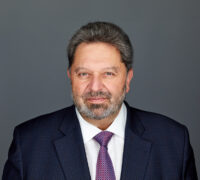Trusting the gut
The 57-year-old Jørgensen took over the CEO baton from Lars Rebien Sørensen and before him Mads Øvlisen, two legendary leaders of the company, and admits it took him some time to find his own way.
“I think the first year or so I tried to make some changes, but I don’t think I succeeded in actually doing it forcefully enough,” he says. “But as time went by and I felt I was more established as a leader, I think the team also learned that when I have reflected on certain strategic things that we need to do, I’m actually quite determined to make it happen.”
Those choices include doubling down on the leadership traits and capabilities needed to help the organization keep up with its sudden growth. “We have invested a lot in getting to know each other in the leadership team. What are my self-limiting beliefs? How do I show up as a leader when under pressure?” he says. “When you get to know your colleagues in team in a way where on a bad day there is your certain behavior and you understand why they do that, then you can become a really, really strong team where you compensate each other.”
Jørgensen has also become a lot more comfortable following his instincts.
“I’m a sensor. I have an intuition for what works and what doesn’t work,” he says. “I still look at facts, and listen to my team, but I am very much driven by my gut feeling. I trust my gut much more today than I did back then. And that’s handy as a CEO because there’s a lot of ambiguity. You don’t have all the facts, yet you are the one that has to make a decision.”
Despite being named FT Person of the Year in 2023 for conducting Novo Nordisk’s transformation, Jørgensen remains self-effacing, putting his success down to his ability to listen to subject matter experts and trust his instincts.
“I think I’m lucky. I joined a company that has been successful. I joined a company with some values that are close to my values. I’m born with big ears and a big nose. I’m good at sensing and smelling what goes on around,” he jokes.
Watch the full CEO Dialogue to hear more from Lars Fruergaard Jørgensen on how the company succeeded in going global in the early 2000s, how he decides on where to invest in new opportunities while staying focused on core competencies and technologies, and how Novo Nordisk is nurturing its unique high performance, caring culture.
Watch the full CEO Dialogue to hear more from Lars Fruergaard Jørgensen on how the company succeeded in going global in the early 2000s, how he decides on where to invest in new opportunities while staying focused on core competencies and technologies, and how Novo Nordisk is nurturing its unique high performance, caring culture.
YouTube

 Podcast available
Podcast available

 Podcast available
Podcast available